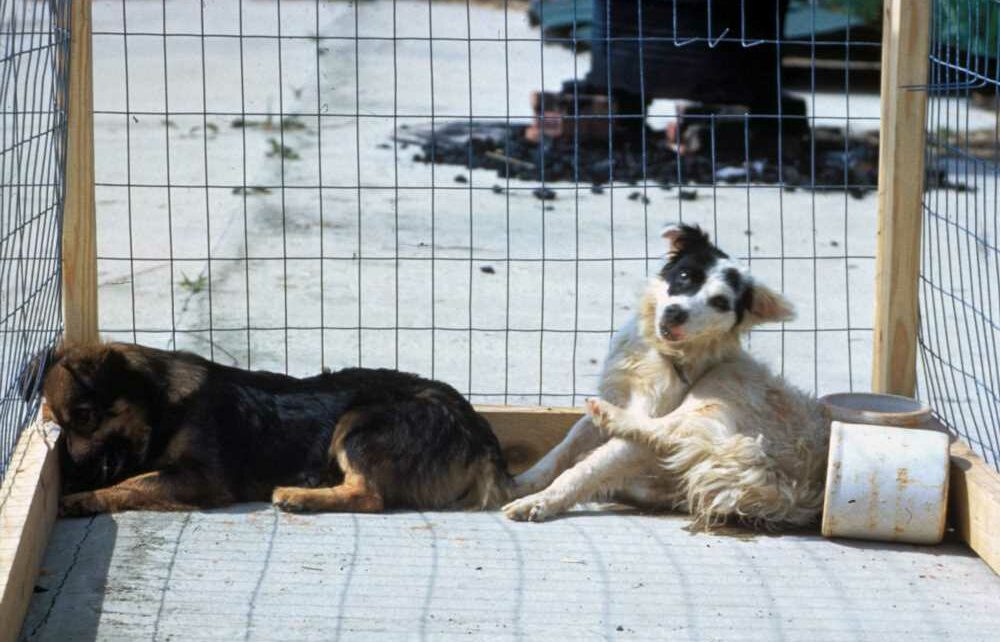A GIRL has died of rabies from a dog attack amid fears she could have bit and scratched 40 people before her tragic death.
The two-year-old was reportedly staying at her uncle's home in the village of Kyolari, India, when she was bitten by the rabid animal.

Neighbours claimed that her family took her to a healer immediately after the attack, but the person reportedly did not issue any medicine against the disease as they were not a certified doctor.
The child was taken to the district hospital on July 21 but died three days later.
Doctors said that once the symptoms appear the disease is almost always terminal.
Although not confirmed, local media reported that the girl could have bit and scratched about 40 people within a period of two weeks before she collapsed.
Read more on rabies

Everything to know about the symptoms of rabies in humans

Terrified tot, 2, needs rabies jab after bat scratched face as she slept
"When they returned to the village, the child started showing symptoms of rabies, which was ignored by her family," one local claimed.
Head of the community health centre Dinesh Bardariya reassured villagers that there is no need to panic as there are enough vaccines available.
She said: "Over 40 people from Kyolari village have come for rabies vaccine.
"However, there is no need to panic as we have enough rabies injections available."
Most read in Health

Deadly ‘zombie' fungus is 'latest global health threat' as bug spreads rapidly

Urgent health warning to millions over sandwich filling which could be deadly

I'm helping raise money to beat bowel cancer, says Deborah James's daughter, 13

Amy Price nominates medics who saved her life for Sun Who Cares Wins award
After a rabies exposure, the virus has to travel to the brain before it can cause symptoms, as explained by the US Centers for Disease Control and Prevention.
The time between exposure and appearance of symptoms is the incubation period.
It may last for weeks to months, depending on how far away it is from the brain, the type of virus, and any existing immunity.
One of the symptoms often assigned to people with the disease is the desire to bite people, but medics say that this is mostly a myth, however, the disease does manifest itself as either a "furious" stage which is most common, or a less common paralytic stage.
The first symptoms of rabies may be similar to the flu, including weakness or discomfort, fever, or headache.
There also may be discomfort, prickling, or an itching sensation at the site of the bite. These symptoms may last for days.
Symptoms then progress to cerebral dysfunction, anxiety, confusion, and agitation.
As the disease progresses, the person may experience delirium, abnormal behaviour, hallucinations, hydrophobia (fear of water), and insomnia.
Treatment for possible rabies
Rabies is a rare but serious infection that’s usually caught from a bite or scratch of an infected animal.
It's almost always fatal once symptoms appear, but vaccination and early treatment can prevent it, the NHS explained.
If you've been bitten, scratched or licked by an animal that may have rabies, a doctor will check if you need treatment.
Treatment usually involves:
- Two or more doses of the rabies vaccine
- A medicine called rabies immunoglobulin, a liquid given into the wound or by injection. This is only needed if you've not had the rabies vaccine before or have a weakened immune system
Source: Read Full Article

